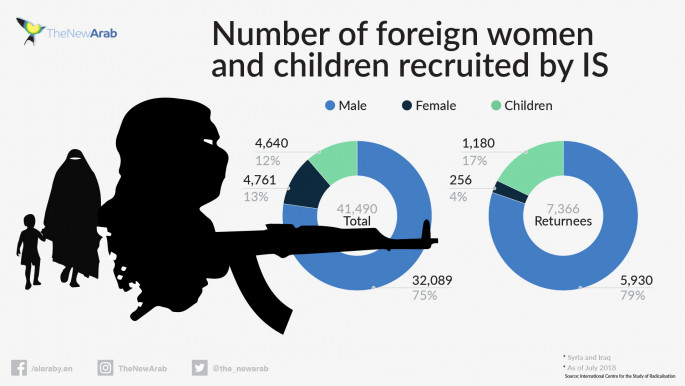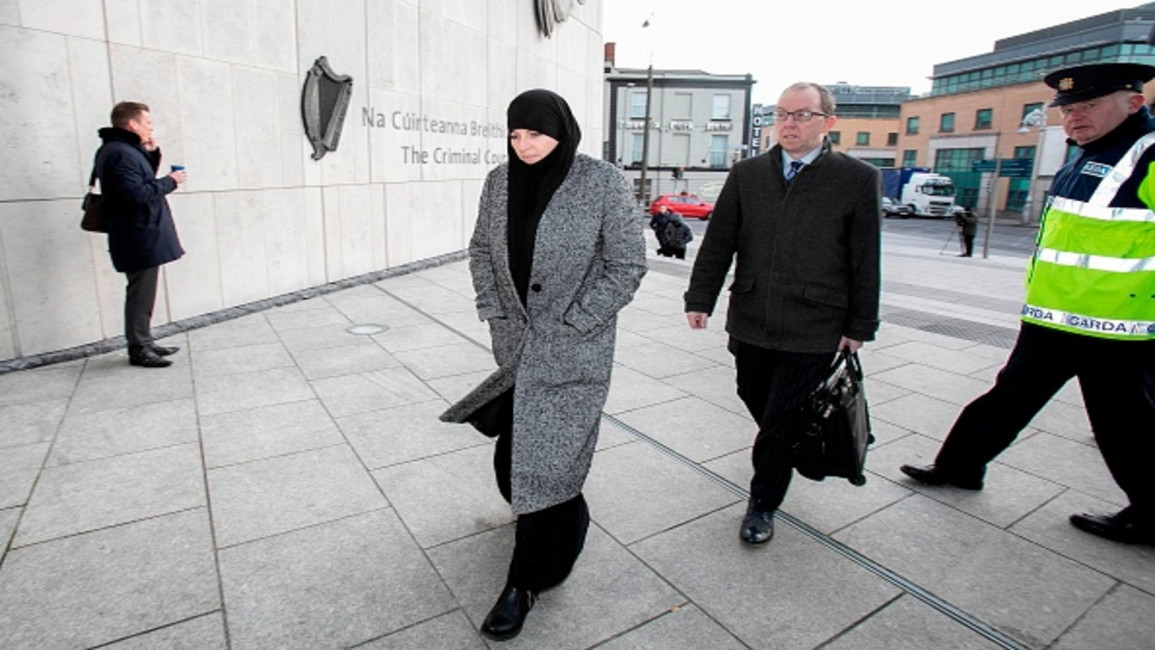IS suspect Lisa Smith wins right to enter UK after legal battle
A 39-year-old Irish woman who travelled to Syria and married an Islamic State group militant was allowed to visit her family in Belfast after winning a legal battle against a ruling banning her from entering the UK.
Lisa Smith, who served in the Irish army and air corps, is accused of having joined the self-styled caliphate in 2015 after converting to Islam. She became the second wife of British extremist Sajid Aslam and had a child with him. She returned to Ireland in 2019 with her daughter after being housed in a refugee camp.
Smith was arrested upon landing at Dublin Airport, in the Republic of Ireland, on suspicion of terrorist offences and was charged with membership of an unlawful organisation.
The British Home Secretary issued a notice to exclude her from the UK on the grounds of national security. Smith appealed against the decision to the Special Immigration Appeals Commission (SIAC) in London, arguing that she had close family connections in Northern Ireland, which is part of the United Kingdom.
The SIAC ruled in Smith's favour on Friday, accepting the defence’s claim that the Home Office ban is discriminatory under the European Convention.
Read also: Iraqi Kurds one step closer to setting up special court for IS suspects
A national of an European Economic Area (EEA) state who does not hold a British passport can be excluded from the United Kingdom. Smith’s father, however, is a dual national born in Belfast, which makes her eligible for dual nationality.
The court concluded that she is entitled to hold a British passport and should be allowed to travel freely within the UK, including to Northern Ireland to visit her paternal family.
Smith denies having been involved in fighting or training girls in the use of weapons.
The ruling comes as the UK and EU member states attempt to navigate the legal and moral conundrums around the repatriation of their nationals who joined the IS group.
British members of Islamic State, including women and children, are still being held in prison camps in northern Syria, with few opportunities for repatriation.
The UK, the US, Ireland and Australia have in some instances stripped the accused of their citizenship.

Follow us on Facebook, Twitter and Instagram to stay connected


![Saudi foreign minister Faisal bin Farhan [Getty]](/sites/default/files/styles/image_330x185/public/2024-05/GettyImages-2150172060.jpg?h=199d8c1f&itok=MA8qajOT)
![A cannabis field in Rif. [Getty] A cannabis field in Rif. [Getty]](/sites/default/files/styles/image_330x185/public/media/images/8F977E5E-7DE1-421B-8C40-E7D00442BEFB.jpg?h=d1cb525d&itok=ztBDDo2l)